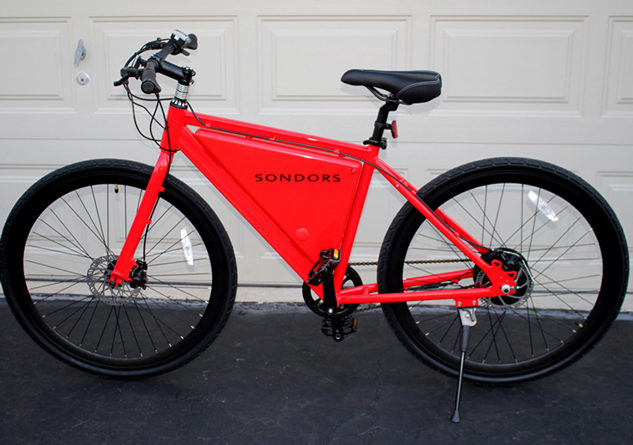Is there truth to the notion that E-bikes recharged off the fossil-fuel grid actually generate fewer carbon emissions overall than conventional human-powered bikes?
Roddy Scheer & Dough Moss
EarthTalk
Well, actually, there could be… E-bike pioneer Justin Lemire-Elmore argues that e-bikes are better for the environment, at least if you compare the carbon emissions associated with producing enough extra food to fuel the rider of a standard bicycle against the emissions from coal-derived electricity used to charge an e-bike.
“Although counterintuitive that a vehicle fueled by something as dirty as coal can be considered clean and green, the fact is that food production is much dirtier,” reports Lemire-Elmore. “All things being equal, an electric bicycle produces 8.5 times less greenhouse gases than a standard bicycle.”
Lemire-Elmore goes on to argue that considerations of the carbon impact of the food we eat should take into account every step “from fork to farm” including greenhouse gas emissions from creating fertilizers, operating farm machinery, delivering raw foodstuffs to factories for processing and then transporting processed goods to a final production and packaging facility before being once again shipped to the grocery store shelf and finally to your pantry via the way-back of your car.
In fact, the average American diet produces .005 pounds of carbon dioxide per calorie of food produced, according to researchers from the University of Chicago. Lemire-Elmore uses this formula to assert that a bicycle commute of 15 miles each way would require the rider to consume an extra 800 calories which in turn would produce almost four pounds of carbon dioxide per day (or 1,444 pounds per year). And if you charge up your bike’s battery with renewable energy (say, from the solar panels on your roof), fuhgeddaboudit! The e-bike wins every time.
Of course, there’s no question that a bicycle, however it’s powered, is a far better mode of transport when it comes to environmental impact compared to any of the other choices as well—even walking. According to research by Mirjan Bouwman of the University of Groningen in the Netherlands, travelling one kilometer by bike (electric or conventional) requires approximately five to 15 watt-hours (w-h) of energy, while travelling the same distance by foot requires some 15 to 20 w-h. (Meanwhile, covering that kilometer in a train requires 30 to 40 w-h and over 400 w-h in a car with just the driver.) An e-bike needs only about 10 percent of the energy required to power a car, and is 13 times more energy efficient than a typical four-door sedan and six times more efficient than rail transit.
The fact that it might be even better than riding a conventional bike when it comes to your carbon footprint might be just the impetus you need to justify spending the extra dollars for a new-fangled “battery-assist” bike. If everyone knew that you were being even more environmentally friendly by NOT pedaling up that steep hill, who wouldn’t go for an electric bike? And with municipalities pouring millions of dollars into improving infrastructure for bikes and new routing apps making biking safer and more fun, now is a great time to embrace the idea of a two-wheeled commute. Maybe it’ll even convince you to get rid of that car altogether…
CONTACTS: “The Energy Cost of Electric and Human-Powered Bicycles,” www.ebikes.ca/documents/Ebike_Energy.pdf; “An environmental assessment of the bicycle and other transport systems,” goo.gl/Lt4Bp6.
EarthTalk® is a weekly syndicated column produced by the non-profit EarthTalk. To find out more, submit a question, or make a donation, visit us at EarthTalk.org.






